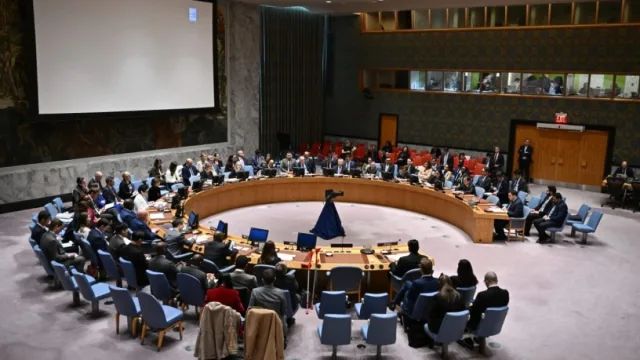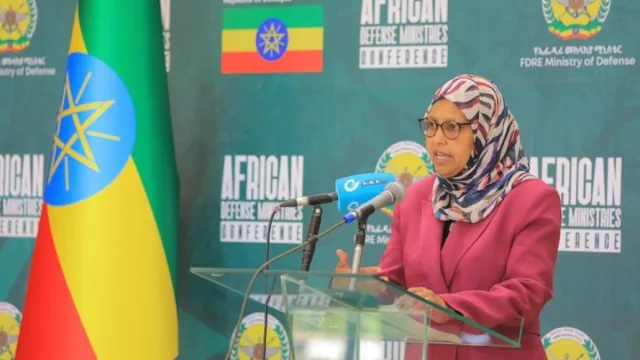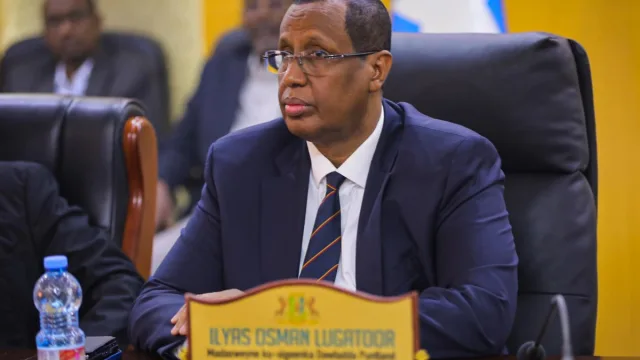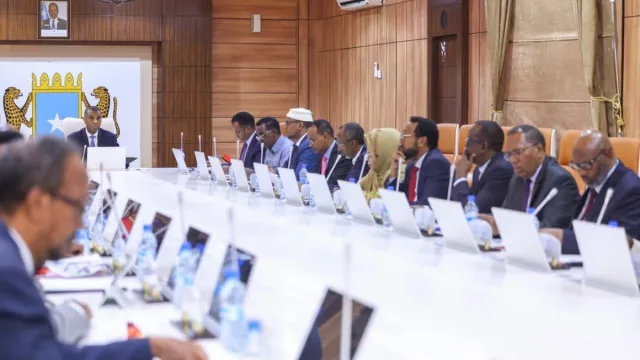Puntland’s Call for Responsible Financial Engagement in Somalia.(Promoting Transparent and Inclusive Development) “Puntland, with its pragmatic…
Puntland’s Call for Responsible Financial Engagement in Somalia.
(Promoting Transparent and Inclusive Development)
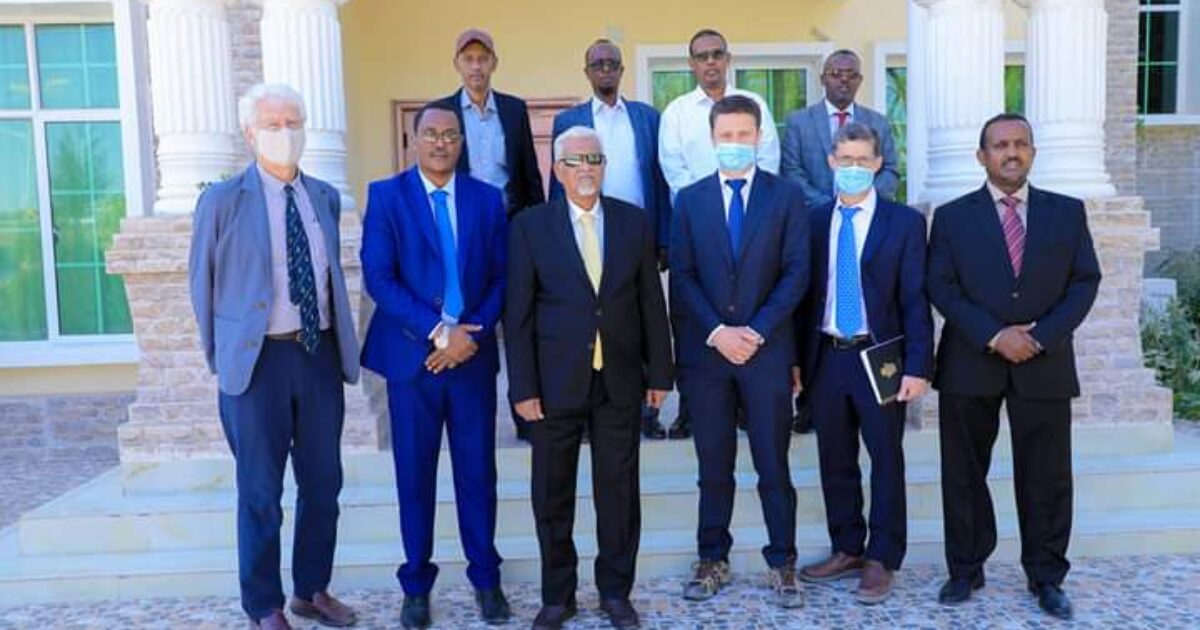
“Puntland, with its pragmatic approach, recognizes the potential benefits of debt
cancellation. However, it expresses genuine concerns about the implications of
uncontrolled new loans and the lack of proper planning and execution by the central federal power in Mogadishu. These concerns stem from the need for transparent financial practices and equitable distribution of resources to ensure meaningful.
Introduction:
Somalia, a nation striving to overcome the aftermath of a tumultuous history, is at a critical juncture in its development trajectory. Puntland, a region within Somalia, stands as a beacon of progress and resilience, with a vision to foster transparent and inclusive development for its people. In light of ongoing discussions surrounding debt cancellation and potential new loans, Puntland seeks to convey its concerns and propose a solution that ensures responsible financial engagement. This academic-oriented opinion piece aims to shed light on the importance of transparency, accountability, and inclusive decision-making processes in shaping Somalia’s future.
Historical Context:
Somalia’s journey towards stability and progress has been marred by political turmoil and conflict. The dismantling of the dictatorial regime in the late 1990s gave way to decades of civil strife and clan-oriented conflicts. With the formation of a weak and corrupt government in Mogadishu, the capital city, a fragmented governance structure emerged, leading to challenges in effective resource allocation and equitable development.
The Case of Puntland:
Puntland, as one of the states within Somalia, has charted a unique path towards development and stability. Its establishment predates the formation of the federal power in Mogadishu, resulting in a clash of constitutions and a need for harmonization. Despite these challenges, Puntland has demonstrated commendable progress in infrastructure development, education, and governance, establishing itself as a key player in Somalia’s future.
International Recognition:
The international partners’ commendation of the people of Puntland for their historic elections adds further weight to these achievements, recognizing Puntland’s commitment to democratic principles and progress. This recognition underscores the importance of inclusive governance and sets Puntland apart as a model for democratic practices within Somalia.
“Let us seize this opportunity to lay the foundation for a brighter, inclusive, and prosperous future for the Somali people”.
Concerns Surrounding Debt Cancellation:
Puntland’s concerns regarding debt cancellation in Somalia are rooted in the need for responsible financial management and the avoidance of past pitfalls. While debt cancellation can provide a fresh start for Somalia’s economic recovery, it is essential to ensure that the lessons from the past are heeded and proactive measures are taken to prevent a recurrence of mismanagement and corruption.
One of the primary concerns is the potential for the central federal power in Mogadishu to seek new loans without proper planning, accountability, and transparency. Puntland recognizes that without robust checks and balances in place, there is a risk that these loans may be misappropriated or misused, leading to further debt burdens and limited benefits for the Somali people. It is crucial to establish mechanisms that enforce accountability and ensure that funds are allocated efficiently, targeted towards critical infrastructure development, social services, and sustainable economic growth.
Moreover, Puntland emphasizes the importance of fair and equitable distribution of resources across all regions of Somalia. Historically, there has been a disproportionate allocation of resources, leading to regional disparities and discontent. Puntland seeks to address this imbalance by advocating for an inclusive approach that prioritizes the needs and aspirations of all regions. By involving local stakeholders, civil society organizations, and the Somali diaspora in the decision-making processes, a more inclusive and representative system can be established, ensuring that the benefits of debt cancellation and subsequent financial engagements are shared equitably among all Somalis.
In light of these concerns, Puntland proposes a comprehensive solution that combines stringent financial oversight, capacity building, and inclusive decision-making processes. This solution entails establishing an independent oversight body, consisting of experts from Puntland, the central federal power, and international partners, to monitor the utilization of funds and ensure compliance with transparent financial practices. Furthermore, capacity building programs should be implemented to enhance the financial management skills of government officials and promote efficient and accountable resource allocation.
Engaging the International Community:
Puntland recognizes the significance of engaging the international community, particularly the IMF and the World Bank, in these discussions. By actively seeking their support and participation in dedicated forums and conferences, Puntland aims to present its concerns and proposed solution directly. It is through this collaborative dialogue that a deeper understanding of Somalia’s complexities can be achieved, and innovative strategies can be developed to address the challenges of development effectively.
Proposed Solution: A Collaborative Approach:
To address these concerns, Puntland proposes a collaborative approach that fosters transparency, accountability, and inclusive decision-making. A joint committee comprising representatives from Puntland, the central federal power in Mogadishu, the International Monetary Fund (IMF), and the World Bank would be responsible for overseeing the planning, execution, and monitoring of any future loans granted to Somalia. This committee would ensure adherence to well-defined development plans, incorporating the needs and aspirations of different regions, thus ensuring equitable resource allocation and responsible financial engagement.
Incorporating concerns about the current National Independent Auditor:
In addition to the proposed collaborative approach, it is essential to address the concerns raised by the international community regarding the current National Independent Auditor in Somalia. These concerns stem from the auditor’s perceived lack of education and experience, which could undermine the effectiveness and credibility of financial oversight mechanisms.
To ensure responsible financial engagement, it is imperative to have competent and qualified individuals overseeing the financial management and auditing processes in Somalia. Puntland acknowledges the importance of addressing this concern and proposes the following measures:
- Strengthening the Capacity of the National Independent Auditor: Recognizing the importance of having a competent and qualified auditor, Puntland recommends investing in training and capacity building programs for the National Independent Auditor. These programs should focus on enhancing their knowledge and understanding of financial auditing practices, international accounting standards, and governance principles. Collaboration with international partners, such as the IMF and the World Bank, can provide technical assistance and expertise to support this capacity-building effort.
- Establishing Independent Oversight Mechanisms: In order to ensure impartiality and credibility, it is crucial to establish independent oversight mechanisms that provide checks and balances on the National Independent Auditor’s work. These mechanisms can include the establishment of an independent audit review board or the involvement of external audit firms to conduct periodic reviews and assessments. By incorporating independent oversight, the accuracy and reliability of financial audits can be enhanced.
- Collaborating with International Audit Institutions: Puntland encourages closer collaboration between the National Independent Auditor and renowned international audit institutions. This collaboration can involve knowledge sharing, joint audits, and peer reviews, which would provide valuable insights and guidance to strengthen the auditor’s capabilities. By tapping into the expertise of international audit institutions, Somalia can benefit from best practices and international standards in financial auditing.
- Ensuring Transparency and Accountability: Transparency and accountability are crucial in addressing concerns surrounding the National Independent Auditor. Puntland advocates for the establishment of clear reporting mechanisms and public disclosure of audit findings to enhance transparency. Additionally, it is essential to ensure that there are proper channels for citizens and civil society organizations to provide feedback, report irregularities, and hold accountable any instances of misconduct or mismanagement.
“Puntland’s quest for transparent and inclusive development in Somalia signifies a collective aspiration to overcome the challenges of the past and build a prosperous future for all”.
Academia’s Role in Informing Policy:
Academic institutions and scholars play a crucial role in informing evidence-based policies and advocating for transparent and inclusive development practices. By conducting comprehensive research, analysing case studies, and offering expert insights, academia can contribute to the dialogue on responsible financial engagement in Somalia. It is through rigorous academic analysis that informed decisions can be made, ensuring the allocation of resources aligns with the principles of equity and sustainability.
Conclusion:
- Puntland’s quest for transparent and inclusive development in Somalia signifies a collective aspiration to overcome the challenges of the past and build a prosperous future for all.
- By voicing its concerns and proposing a collaborative solution, Puntland seeks to steer financial engagement towards responsible practices, ensuring transparency, accountability, and equitable distribution of resources.
- The international partners’ recognition of Puntland’s historic elections reinforces the importance of inclusive governance in fostering sustainable development. Let us seize this opportunity to lay the foundation for a brighter, inclusive, and prosperous future for the Somali people.
“This academic-oriented opinion piece calls for the international community to recognize the significance of these considerations and engage in meaningful dialogue to shape a sustainable development trajectory for Somalia and learn from past mistakes”.
Mr. Haybe Issa Hirad (Gacal)
issagacal@gmail.com
